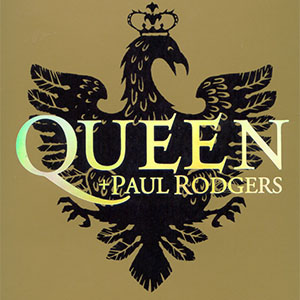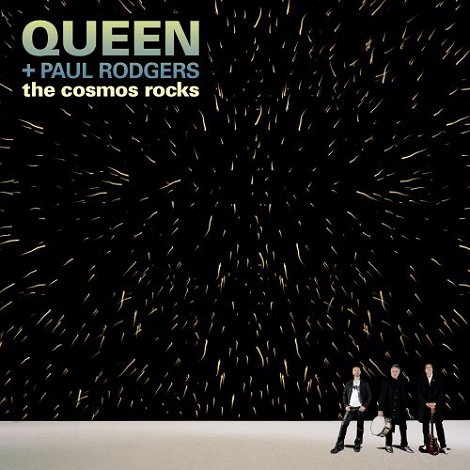12-17-2004 – Daily Mail – We Will Rock You (Again)!
After 18 years, Queen are going back on tour. But how have their lives changed? And can these middle-aged rockers really succeed without Freddie..?
QUEEN are going back on the road. To the amazement of the music industry and the delight of their fans, the group who arguably rank second only to The Beatles in British pop history this week announced that they will be touring Europe next spring.
These will be Queen’s first dates since 1986, when they ended a triumphant European tour with a massive outdoor concert, for 125,000 fans at Knebworth House in Hertfordshire.
Their singer that night was the legendary Freddie Mercury, a man whose astonishing voice and musical ability was equalled only by his inexhaustible appetite for excess.
Born in Zanzibar and schooled in India, the gay, flamboyant Mercury was a showman like no other. He was also the perfect frontman for a band unusual in every sense.
Formed in 1971, at a time when rock bands boasted of their street credibility, wore scruffy clothes and played interminable guitar and drum solos, Queen were unashamedly middleclass, each with a university degree to their name.
They also dolled themselves up in satin and silk, and believed in melody and soaring harmonies.
With their promotional film for Bohemian Rhapsody in 1975, they virtually invented the rock video.
The irony, of course, was that they could outplay and outwrite all the rock snobs who looked down on them as a mere pop act.
Queen were serious musicians and, uniquely, all four members of the band wrote at least one worldwide hit.
Offstage, Queen were a legendary party-band. No post-show celebration was complete without naked girls mud-wrestling, or gallons of champagne served by dwarves. In 1978, they launched their Jazz album in New Orleans with one of the most decadent binges in rock history.
As Queen’s guitarist, Brian May, told me, more than 20 years later: ‘It was deliberately excessive.
There were all kinds of weird acts, including a guy who sat in a pile of chopped liver, and women who did unusual things with their anatomies. We made friends with all the strippers and transvestites… We had a hoot.’ The band paid for their wildness.
‘The excess leaked out from the music into our lives and became a need,’ said May.
‘Freddie, obviously, went completely AWOL, which is why he got that terrible disease. He wasn’t a bad person, but he was utterly out of control for a while. In a way, all of us were out of control and it screwed us up.’ MERCURY paid the ultimate price for his lifestyle, dying of Aids in 1991 at the age of 45. Since then, his bandmates – each sustained by personal fortunes in excess of Pounds 50million – have kept Queen’s name alive.
Each of them honours the memory of a man who was a much-loved friend as well as a working colleague. But the question must be asked: how on earth can they possibly replace a star as mesmeric as Mercury? For the three surviving members of the group are very different men from their lost leader.
John Deacon, 53, the quiet, undemonstrative bass guitarist who wrote one of Queen’s biggest hits, Another One Bites The Dust, has effectively retired.
He lives with his wife and six children on the outskirts of London, studiously avoiding the limelight.
Whenever he does emerge in public, it is to pour cold water on any attempt to resurrect Queen. Three years ago, when Robbie Williams recorded a version of We Are The Champions for the film A Knight’s Tale, Deacon refused to join Brian May and drummer Roger Taylor at the recording session.
‘I didn’t want to be involved with it and I’m glad,’ said Deacon afterwards.
‘I don’t want to be nasty, but Robbie Williams is no Freddie Mercury. Freddie can never be replaced – and certainly not by him.’ Deacon will be invited to join next year’s Queen tour, but it is reasonable to assume that he’ll decline.
BRIAN MAY, of course, is a much more public figure.
Any man who can stand atop Buckingham Palace and play the National Anthem as a guitar solo, as May did to kick off the Queen’s Golden Jubilee concert two years ago, clearly has a taste for public adulation.
Yet behind that extrovert image lurks a very different individual. I have twice interviewed May at the rambling country house in Surrey that he uses as a recording base, and where he keeps his vast collection of early Victorian photographs.
A quiet, gentle man, prone to bouts of depression – ‘I live in my head too much,’ he said to me ruefully – his great love is astronomy. Clever enough to have written a PhD on Motions Of Interplanetary Dust, he could have become one of this country’s leading space-experts.
To this day, May, 57, and his great friend Patrick Moore travel the world to view eclipses, comets and other astronomical phenomena.
Back home, he lives in a mansion in London’s Holland Park with his actress wife and former EastEnders star, Anita Dobson.
The couple’s relationship is said to be idyllic, but it has not always been so happy. In 1999, it was revealed that May had been having an affair with his assistant, Julie Glover.
May and Anita split up before he flew to Canada, where she was starring in a show, begging her to return to him. A year later, they married. ‘There is a supernatural force at work, as far as I’m concerned, with Anita,’ said May.
‘Ever since I first set eyes on her, she’s been an essential part of my life.
‘When she gets p****d off with me, the world goes black, it really does.
Any time that I’ve tried to turn my back on her in the smallest possible way, my guts fall out.’ Drummer Roger Taylor, 55, meanwhile, is a far more outgoing personality. As one acquaintance puts it: ‘Of all the people one sees at rockstar soirees, he’s the most fun to talk to. He’s a really bright, interesting, funny man.’ Taylor’s love-life is famously tortuous. After a long relationship with French beauty Dominique Beyrand, which produced two children, Felix Luther and Rory Eleanor, Taylor fell for stunning model Debbie Leng, best-known as the Cadbury’s Flake girl.
The couple had three children: Rufus Tiger, Tiger Lily and Lola May.
LENG might have hoped she would become Mrs Roger Taylor but, in an extraordinary turnaround, Taylor married Dominique so their two children could be legitimised.
Unsurprisingly, Leng was not best pleased and moved out of Milhanger, Taylor’s Pounds 6.5million 75-acre Surrey estate with its state-of the art recording studio.
In 2002, Taylor briefly dated Catrina Davies, a blonde 21-year old glamour model, but he soon realised the error of his ways and attempted to win back Debbie. He bought a huge country house, virtually next door to Debbie’s Sussex cottage. The couple have been friends and neighbours ever since. But are they also lovers?
This is a topic that causes much gossip and debate among their friends. As one says: ‘Whenever Roger goes to a premiere, Debbie is always the girl on his arm.
‘They’re very close and they obviously still love each other, which is fantastic. But perhaps the reason they get on so well is that they’ve got their separate lives and they see each other when they feel like it.’ When not working on Queen projects, Taylor is part of a set of wealthy, sophisticated, upmarket rock stars who live in luxury deep in the Surrey and Sussex countryside.
Their members include Ringo Starr, Eric Clapton, Pink Floyd’s David Gilmour and former Genesis guitarist Mike Rutherford.
When England play major football matches, Taylor puts a jumbo- sized TV screen in his barn and invites his fellow rock stars to a party. And he does his best to maintain the old Queen traditions, providing lap dancers from Stringfellows to entertain his guests.
This is the life to which Taylor has always aspired. As he told me: ‘We always said we wanted to be the biggest band in the world.
Unashamedly, that was the object of the enterprise. What else are you going to say: “We’d like to be the fourth-biggest”?
‘I like to travel,’ he continued. ‘I’m in the nice position of having more than one house in different countries. I love going sailing or skiing and I love my garden. I’m very lucky, it’s a very privileged lifestyle.
But we worked bloody hard for it.’ In short, Taylor has spent the past 15 years living the life of Riley. So why on earth would he or Brian May want to go to all the trouble of getting back out on the road?
After all, it’s not as if Queen are in need of work, let alone money.
Every year brings new collections of hits or new live albums and then there is the hugely successful Queen tribute show, We Will Rock You, at London’s Dominion Theatre, which has played to some 1.75 million people since it opened in May 2002.
The show has now been produced in Spain, Germany, Australia, Russia and Las Vegas and both May and Taylor are actively involved with every production.
They get on stage at post-premiere parties and rattle off a few Queen songs.
May has been known to fly to Australia, just to check that the production there is still working well.
Tomorrow night he will be in the Las Vegas production where he will be making a guest appearance, rising through the stage in a cloud of smoke to play the guitar solo in Bohemian Rhapsody. He will make a similar appearance at the Dominion in January to mark the 1,000th performance of the show.
We Will Rock You is now generating such vast amounts of money that the need to work is even less of an issue for the surviving multimillionaire Queen members.
But it’s hardly surprising if, as they watch other people sing their songs and play their instrumental parts night after night, they don’t start thinking that it would be more fun to do it themselves.
What has come as more of a shock is their choice of singer. Over the years, all manner of possible vocalists had been suggested to fill the vast gap left by Freddie Mercury, with George Michael or Elton John always seeming like the best candidates.
But Paul Rodgers, 55, once of the band Free, was never on anyone’s wish-list. Among his rock contemporaries, who remember how pugnacious he could be in the old, drug-and-booze-fuelled days, he is not – to put it politely – a universally popular figure.
‘A ghastly, horrible man,’ says one member of the gang.
YET Brian May thinks that Rodgers could be the man to do the job for Queen.
He feels the chemistry between his guitar and Rodgers’ voice works well.
But Jacky Smith, of the Queen fan club, sounds a note of caution: ‘For years it’s been enormously tough for the surviving members to get their heads around the question of how they can do this without Freddie.
‘That’s why this isn’t Queen with a new singer. It’s Queen, plus Paul Rodgers, singing some of their songs.’ In other words, the band aren’t really replacing Freddie Mercury, because you can’t replace Freddie Mercury. But somehow, I think we already knew that.


